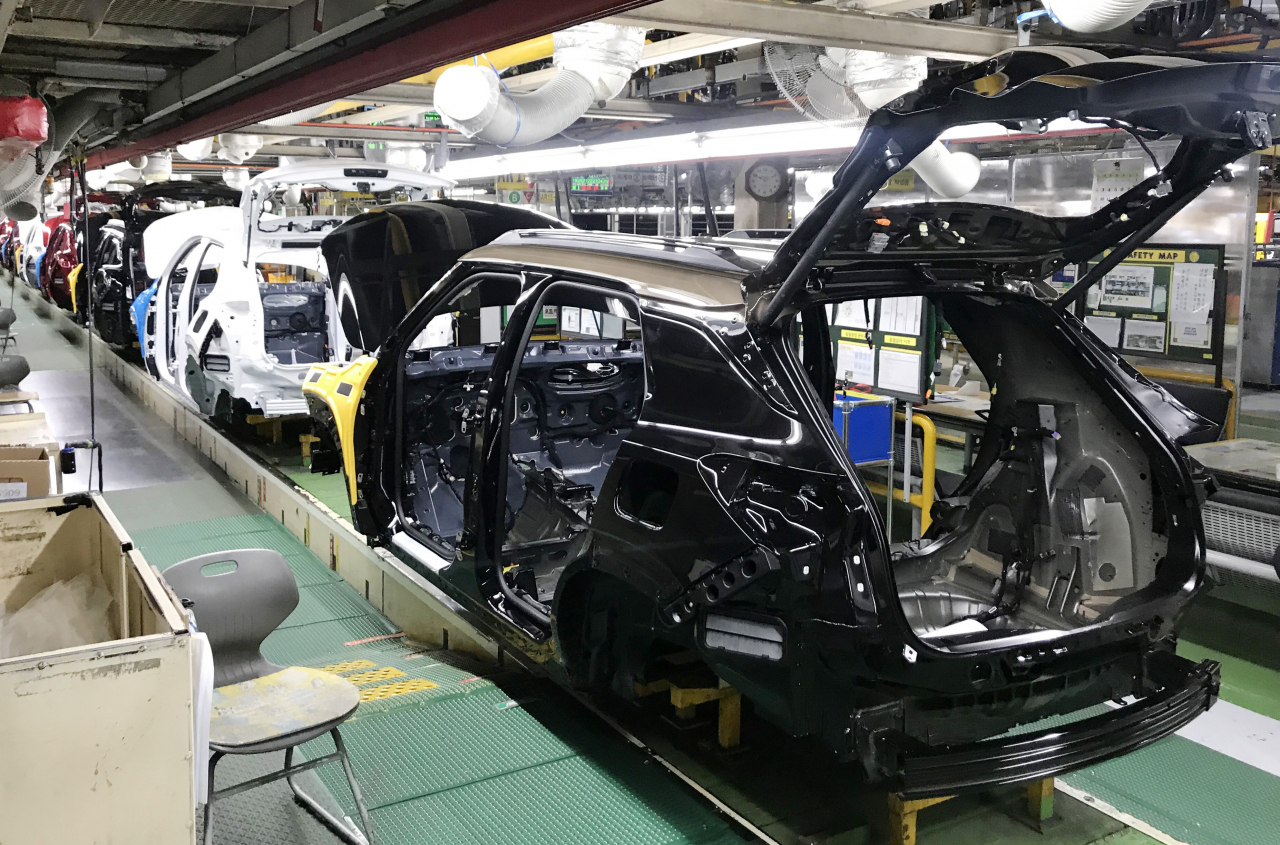 |
An assembly line at GM Korea's factory Bupyeong, Incheon. (GM Korea) |
Carmakers in South Korea -- Hyundai Motor and GM Korea -- appear to be concerned as hardline union leader came back to negotiation tables, amid prevailing uncertainties at manufacturing facilities hit by the pandemic and supply crunch woes.
According to Hyundai Motor branch of Korean Metal Workers’ Union, Ahn Hyun-ho has received 53.3 percent of approval from some 48,000 member union to reign over the country’s one of the most powerful unions from next year for two years. In 1998, he was deputy chair of the union that held a strike against layoffs at Hyundai Motor. He also spearheaded a violent protest in 2007 after the company cutback performance-based incentives.
With Ahn’s return, Hyundai Motor has met with union of militant leadership in two years. The past two years was led by a union seeking pragmatism and there were no strikes.
GM Korea has also met with another hardliner union branch leader Kim Jun-oh, who received 56.7 percent from the 7,627 member union.
While structural reform in the workforce is inevitable for both carmakers for transition to electric vehicle production, both carmakers have been moving to phase out combustion car manufacturing at its facilities and introduce EV making platforms instead, raising concerns for replacement of human jobs with robots.
Earlier this year, Hyundai Motor has reduced the number of workers at its production lines by 30 percent and deployed them to other jobs to focus on developing automated vehicles like urban air mobility units and robotics technologies.
GM Korea is also ending the production of its major models Malibu and Trax after the first half of next year, which is likely to cause labor-management conflict over the allocation of new models for manufacturing.
Market experts viewed that with the hardliners, the workers are likely to pressure the management and go on a strike to earn what their union heads had pledged during the campaign such as shortened work hours, guarantee for overtime premium, extension of the retirement date and expanded right to refuse work.
By Kim Da-sol (
ddd@heraldcorp.com)








![[Today’s K-pop] Blackpink’s Jennie, Lisa invited to Coachella as solo acts](http://res.heraldm.com/phpwas/restmb_idxmake.php?idx=644&simg=/content/image/2024/11/21/20241121050099_0.jpg)